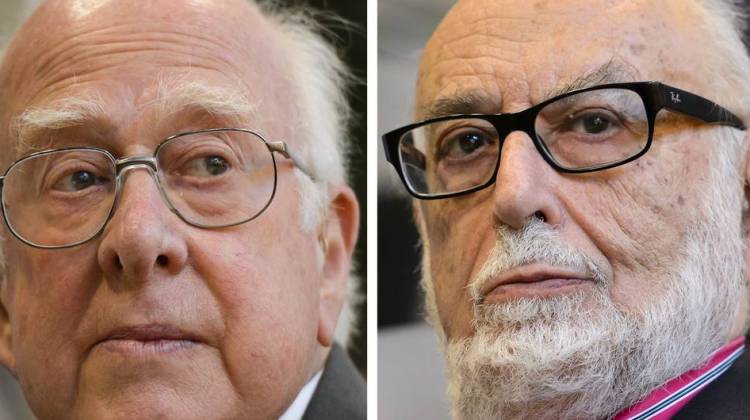Peter Higgs and Francois Englert have been jointly awarded the Nobel Prize in Physics for their theory of how particles acquire mass, the Swedish committee announced Tuesday.
The prize was given "for the theoretical discovery of a mechanism that contributes to our understanding of the origin of mass of subatomic particles, and which recently was confirmed through the discovery of the predicted fundamental particle, by the ATLAS and CMS experiments at CERN's Large Hadron Collider."
In 1964, Higgs of Britain and Englert of Belgium (along with a now-deceased colleague), independently proposed a particle as part of a mechanism to explain how the universe works at its most basic level. The existence of that particle, known today as the Higgs boson, or Higgs particle (and sometimes the "God particle"), was confirmed after a series of high-energy collisions at the LHC.
CERN tweets:
"The awarded theory is a central part of the Standard Model of particle physics that describes how the world is constructed," the Nobel committee said in a statement. "According to the Standard Model, everything, from flowers and people to stars and planets, consists of just a few building blocks: matter particles. These particles are governed by forces mediated by force particles that make sure everything works as it should.The entire Standard Model also rests on the existence of a special kind of particle: the Higgs particle."
"This particle originates from an invisible field that fills up all space. Even when the universe seems empty this field is there," the committee said. "Without it, we would not exist, because it is from contact with the field that particles acquire mass. The theory proposed by Englert and Higgs describes this process."
Higgs, 84, is from the University of Edinburgh. Englert, 80, is from the Free University of Brussels.
NPR science correspondent Geoffrey Brumfiel says that "the field is what actually does all the work in theoretical physics. The Higgs particle (or Higgs boson) is an excitation of this field."
"Higgs unifies the electromagnetic force with the weak nuclear force," Brumfiel explains. "This brings physicists a bit closer to an elusive theory of everything."
9(MDEwMDc1MzM3MDEzNDczOTA0MDc1MzViMQ001))
 DONATE
DONATE








 Support WFYI. We can't do it without you.
Support WFYI. We can't do it without you.